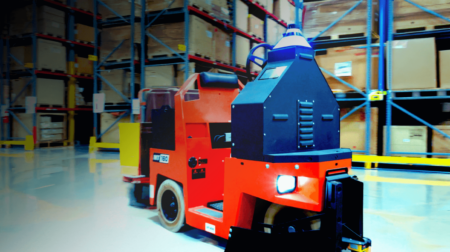The UK’s Robotics Growth Partnership (RGP) has published its Smart Machines 2035 Strategy.
The 10-year roadmap aims to tackle societal challenges such as an ageing population, workforce shortages and environmental sustainability through robotics and smart automation to establish the country as a global leader in robotics and autonomous systems (RAS).
The strategy outlines how robotics can address societal challenges, boost economic productivity and enhance the UK’s technological leadership.
Highlighting the UK’s existing strengths in research, innovation and entrepreneurship, the strategy presents a framework for fostering demand for smart machines in public services, national infrastructure and industry while building a supportive ecosystem for innovation and business growth.
At the heart of the plan is a proposal to create an Office for Smart Machines (OSM), which would oversee policy coordination, support the integration of smart machines across industries and drive investment in robotics research.
READ MORE: UK government opens bidding for ‘AI Growth Zones’
The OSM would work closely with industry stakeholders and regulatory bodies, ensuring a streamlined approach to public procurement and the adoption of automation solutions.
Its structure would include dedicated teams focusing on standards development, funding allocation and strategic partnerships with academia and businesses.
Additionally, it would coordinate government efforts and facilitate public procurement of robotic solutions.
The strategy also calls for the expansion of regional Smart Machine Translation Hubs to support business adoption, research and regulatory development.
READ MORE: Chancellor outlines ‘modern industrial strategy’ to boost investment in UK industries
Lord Patrick Vallance, minister of state for science, innovation and technology, welcomed the RGP’s proposals, noting that RAS are crucial to the UK economy.
“Robotics enable better, faster work in greater comfort and safety, while supporting humans to focus on more valuable, creative work.
“This supports the government’s primary mission of kickstarting economic growth,” he said.
According to the Department for Science, Innovation and Technology, the UK currently hosts more than 2,300 robotics companies, contributing an estimated £3bn to the economy annually and employing approximately 45,000 people across various sectors, with notable strengths in autonomous drones, self-driving vehicles, surgical robotics and agritech.
The Smart Machines 2035 Strategy aims to unlock the UK’s potential by fostering collaboration between government, academia and industry.
The government will consider the strategy’s recommendations alongside its forthcoming Industrial Strategy, expected to be published later this year, which will outline key priorities for supporting high-growth technology sectors.
Additionally, the Review of Technology Adoption, announced in the 2024 Autumn Budget, aims to identify and address barriers to implementing transformative technologies, with findings due to be released in early 2026.
The RGP, established in 2019, advises the UK government on robotics policy and industry development.
Its latest strategy seeks to remove barriers to adoption, create regulatory frameworks for trusted AI-enabled machines and position the UK as a competitive player in the global robotics landscape.
The government has committed to reviewing the strategy’s recommendations as it refines its approach to technological innovation and industrial policy.
Join more than 11,000 industry leaders at Robotics and Automation Exhibition on 25-26 March 2025, at the NEC Birmingham to explore cutting-edge technologies, connect with peers and discover the latest innovations shaping the future of warehousing, manufacturing, engineering and logistics. Register for free now to secure your place at this premier event!








